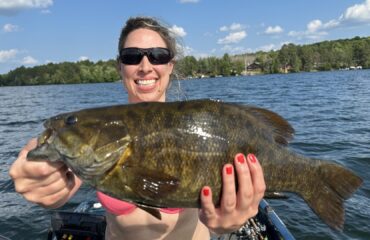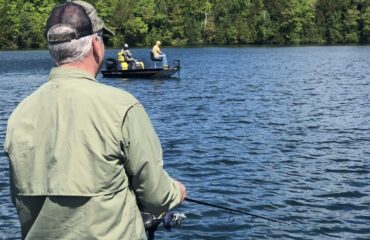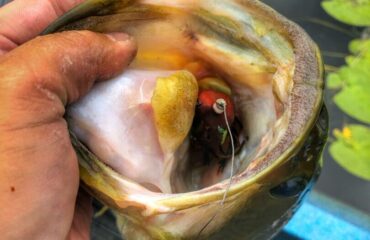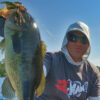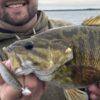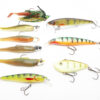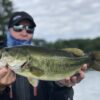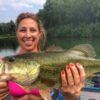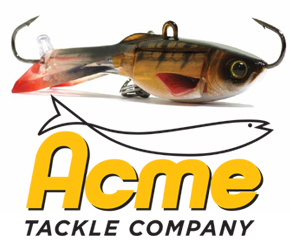The Smallmouth Clean-Up Crew
In the realm of fishing suspending jerkbaits, there comes a period when smallmouth bass grow conditioned to the baits being presented before them. If lucky enough to enjoy 100 fish days with a hard bait, there is a high probability many will grow wary of it in due time or in future years. The solution to trigger more strikes from conditioned fish is to adjust the presentation to something similar, but different. Entering the picture is a suspending fluke.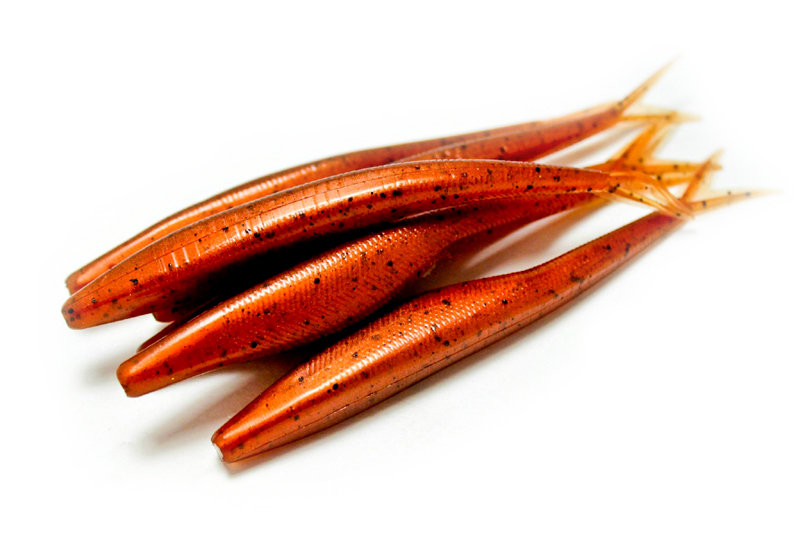
I classify jerkbaits by two types: Soft bait and hard bait. I fish both styles differently depending upon what conditions and fish feeding moods dictate. I also fish them head-to-head, often complimenting one another on separate rods. I also fish them on days like this when pressured fish grow conditioned to one presentation, and are in favor of the other.
Typically, I’ll fish soft jerkbaits for less aggressive fish (finesse and sight fishing), and hard jerkbaits for active aggressive fish and as a reactionary bait during coldfront and cold water periods. Both are deadly options in the spring regardless of water temperature, and when one isn’t working as well the other will work as the better alternative.
In this manner, the fluke serves as my clean-up crew for smallmouths responding to jerkbaits.
Equally effective for smallmouths, and sometimes even better depending on fish activity levels, soft jerkbaits can be fished with the same cadence as a hard jerkbait to draw strikes. It draws strikes from aggressive fish, but also triggers reluctant strikes from wary and conditioned fish. Soft jerkbaits will produce when the hardbait won’t. It’s important to work a soft jerkbait just as you would a hard jerkbait. Rigged weightless with a 3/0 Eagle Claw Trokar MagWorm with plastic barb keeper, which keeps it honest and gives it a slow sink, I make sure to pop the bait with a few upwards jerks and let it hang and glide slowly down a few feet in the water column. When it’s their time to be used, soft jerkbaits offer a greater hang time in strike zones and will always sink at a slow minimal rate. It becomes a glide bait. Additionally, they will offer livelier finesse action which I believe is what tempts conditioned fish and big and old experienced bronzebacks to strike. The soft jerkbait will often catch smallmouths from the same spots where the hardbait blew past them moments earlier.
Soft jerkbaits in the “fluke” style rigged weedless and weightless are my favorites during these unique situations. My boat carries a huge mess of soft jerkbaits. Our favorite brands are Kalin’s Jerk Minnows and Jerk Minnow Jr’s, Strike King Caffeine Shads, Bass Assassin Shad Assassins, and a humongous array of custom created jerk minnows I’ve had others supply me with.
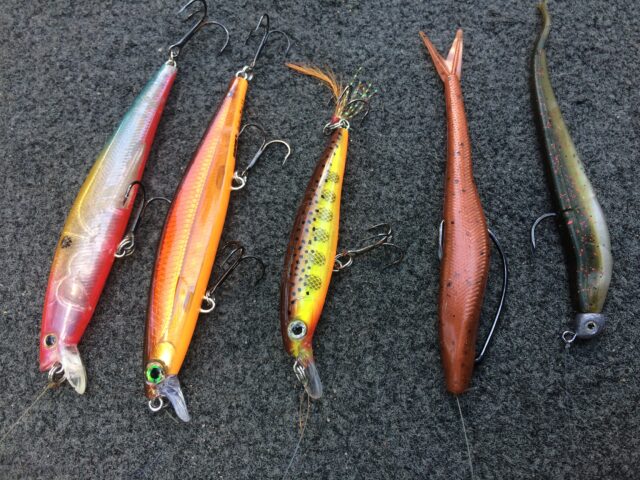
Fished similarly to a suspending jerkbait such as the X-Rap, with the same cadence and aggression, soft minnows will stay in strike zones longer, float higher in the water column, invite conditioned fish, and entice strikes from fish that have either been previously caught or grown disengaged altogether. Best of all they can be dead stuck and avoid snags – characteristics that play largely in the snag filled shallow spring habitats smallmouths prefer.
Make it a priority to compliment your suspending jerkbaits with the soft jerkbait alternative I exemplify. There will come times when both will work simultaneously, or one will work better over the other. Let the fish decide for you and if they ever grow conditioned in this manner, the fluke will change the minds of smallmouths and bring them to aggressive feeding levels once again.
I’ve caught hundreds of spring smallmouths with this reciprocal technique in warm and calm sunny conditions, and equally in cold windy snowy conditions. I have no such proof that weather conditions and water temperatures have a role in this style of fishing.
The success of reciprocating between hard and soft jerkbaits and interchanging them on smallmouths all has to do with smallmouths staging and being congregated near spawning grounds, their feeding moods, level of conditioning, and the angler cleaning up on his missed strikes.
Learn to tag team smallmouths with a combination of hard and soft jerkbaits. By doing so, you’re going to have a hard time getting off the water this spring.





